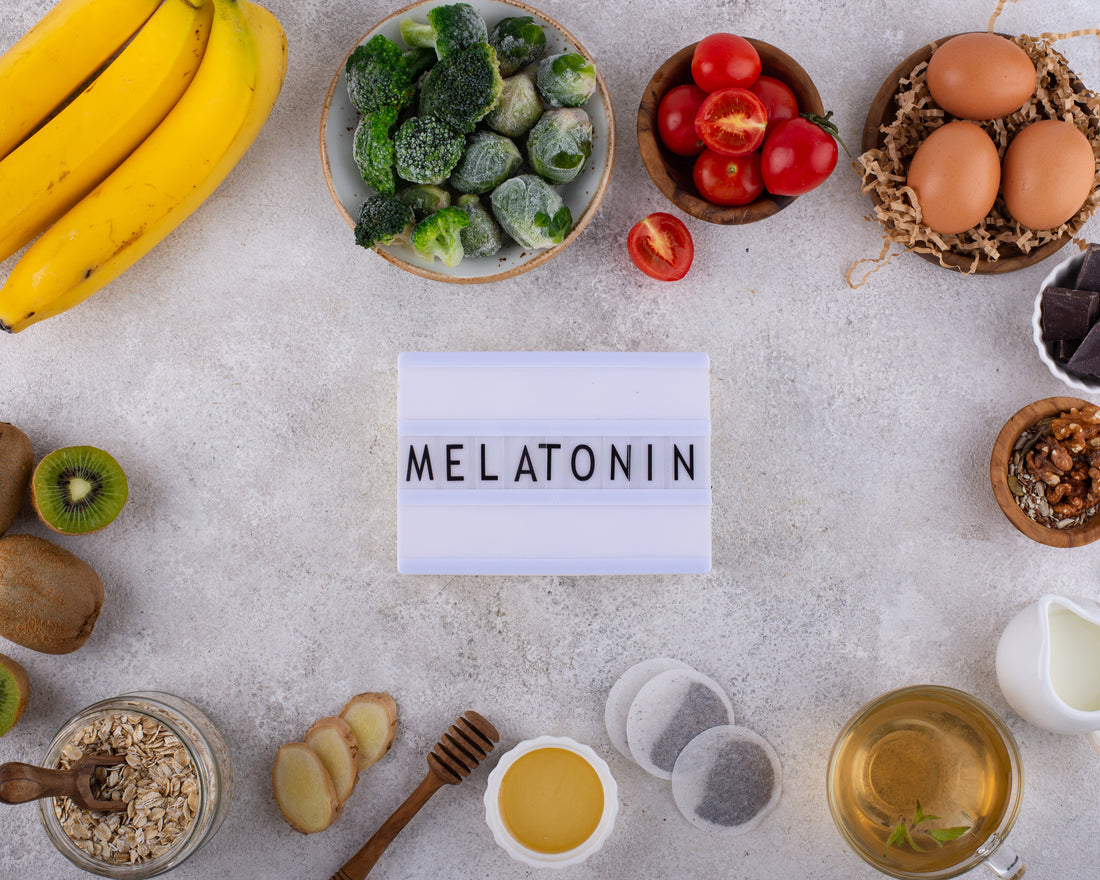By Suzy Davenport
Poor sleep quality appears to accelerate ageing at the cellular level: sleep loss is associated with shorter telomeres and possible increased cellular senescence, both of which are key mechanisms underlying the ageing process. There is no doubt that sleep deficits lead to physical and cognitive impairments.
Minimizing your exposure to blue light in the evening, avoiding caffeine, spicy and sugary food before bedtime and maintaining regular sleeping and waking times are all ways in which you can help maximize your sleep quality. There are also many supplements that research suggests can help you to sleep better.
Here are 7 such supplements for better and longer sleep.
1. Melatonin
Melatonin is a hormone secreted by the brain, and is well known for its role in regulating sleep. Light suppresses melatonin production, while in the absence of light, melatonin levels rise and promote sleep.
Melatonin supplementation improves sleep quality, mainly by decreasing the time taken to fall asleep and increasing total sleep time. Melatonin also appears to be highly effective in treating insomnia.
Also, taking 3mg of melatonin was associated with improved memory retention during periods of stress.
2. Magnesium
Magnesium is a mineral present in many foods, and is the 4th most abundant mineral in the body. Studies suggest that almost 50% of the adult population have below ideal magnesium intake. In the central nervous system, magnesium has a calming effect, and low magnesium levels are highly associated with stress.
Magnesium supplementation appears to reduce the time it takes to reach a sleep state, increase total sleep time, and reduce sleep disturbances.
Magnesium also appears to have multiple additional benefits aside from sleep promotion, most notably a reduction in blood pressure and blood sugar.
3. GABA
GABA, or gamma-Aminobutyric acid, is the body’s main inhibitory neurotransmitter. GABA reduces the activity of neurons throughout the nervous system to produce a calming effect.
Scientific studies suggest that GABA can have stress-reducing and sleep-enhancing effects. Supplementation with GABA may both help people to fall asleep quickly and increase the duration of slow wave sleep. The benefits of GABA seem to be geared more towards the early stages of sleep.
4. L-Tryptophan
L-tryptophan is an amino acid used in the synthesis of the neurotransmitters melatonin and serotonin. As already discussed, melatonin promotes sleep in response to low light levels. Serotonin, while best known for its role as a ‘happiness neurotransmitter’, also appears to be necessary for sleep.
Tryptophan is used to treat insomnia and sleep apnea, and its sleep
promoting effects are well established.
L-tryptophan appears to accelerate sleep onset and improve sleep duration. As L-tryptophan boosts serotonin levels, it may have the added benefit of improving mood and aiding weight loss (as serotonin suppresses appetite).

5. 5-HTP
5-HTP or hydroxytryptophan, is a naturally occurring amino acid. Like tryptophan, it is used to synthesize the neurotransmitters: serotonin and melatonin.
Studies in both humans and animals suggest that 5-HTP can reduce the time it takes to fall asleep and improve sleep quality. 5-HTP appears to be particularly effective when combined with GABA.
6. Valerian Root
Valerian is an herb that has been used since ancient times to promote relaxation and sleep. It inhibits the breakdown of GABA, the body’s main inhibitory neurotransmitter, and thereby produces a calming effect.
Research suggests that valerian is an effective and safe supplement for improving sleep quality.
One study also suggested that taking valerian allowed adults with insomnia to reach slow-wave sleep 36% faster and to remain in slow-wave sleep for longer. In addition to its effects on sleep, valerian root may also help you relax.
7. Chamomile
Chamomile is an herb that has been consumed for centuries as a remedy for several health conditions. Its tea is a caffeine-free alternative to green or black tea that appears to offer a variety of health benefits, which include improved sleep quality. Chamomile contains apigenin, a compound that binds to GABA receptors and may thereby produce a calming effect.
In one study, individuals who consumed 270mg of chamomile extract twice per day spent 1/3 less time awake at night and fell asleep 15 minutes faster than those who did not consume the extract.
In addition to its effects on sleep, chamomile also appears to have a wide range of additional health benefits due to its high content in anti-inflammatory and antioxidant compounds. Drinking chamomile tea was associated with a significant reduction in blood sugar in patients with type 2 diabetes. The same study also noted reduced total cholesterol, triglycerides and LDL (‘bad cholesterol’) in those who drank chamomile tea.
source: growinglife.com
Download the full issue of the January-February 2024 Healthy Options News Digest here.





